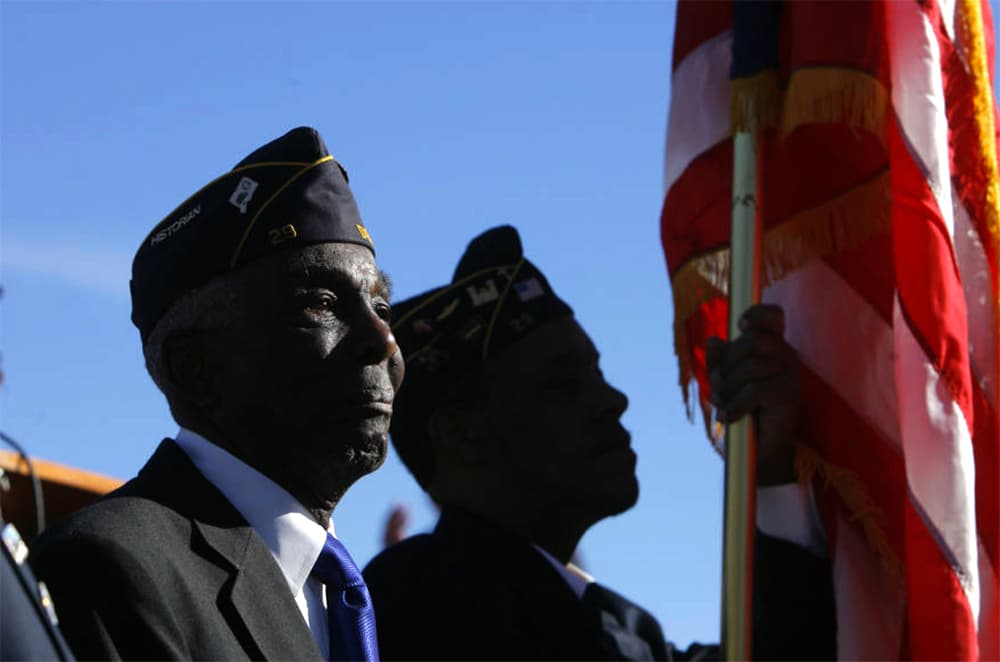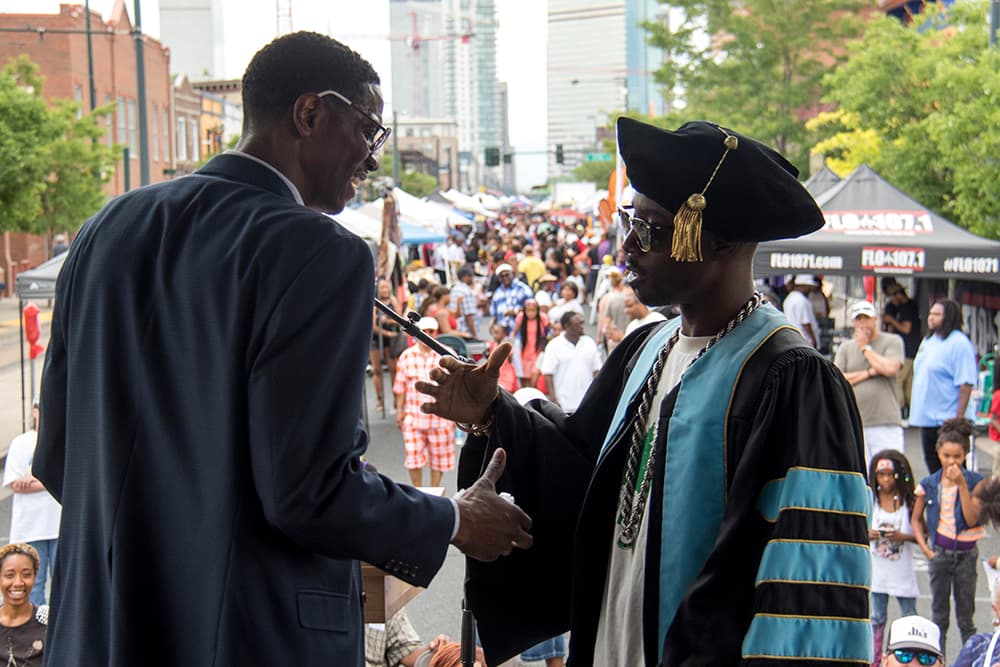
Norman Harris Sr. started every day with a raw egg, rice milk and raisins. Then he would meticulously sweep the sidewalk in front of the apartment building he owned at 26th and Welton, cleaning every corner and crevice, always fearing that he would be ticketed if he didn't keep his property in pristine condition.
This routine spoke to two central facts about Harris, who died last week at the age of 99 of a respiratory illness.
First: He was meticulously organized, having worked as a computer programmer as early as 1967. Second: He was fiercely proud of his membership in an exclusive club: the black land and business owners of northeast Denver.
"My grandpa lived it. He lived that," said Norman Harris III.
"He was there. He figured out how to get a piece. He figured out how to get financing when no one would give him finance. He opened new businesses. He put his kids through college. He put his grandkids through college. He put his great-grandkids through college."
Harris the elder would continue his mornings with a 1.5 mile walk through Five Points, the neighborhood where he'd lived for the better part of a century.
He would collect rent from 21 low-income and veteran tenants at the historic building he'd rescued on Welton Street, or he would stop in the barber shop, the cleaners, the record store.
"He was a person that at 98 years old was still running his business," Harris said.
The late Harris was born in Emporia, Va., in 1918. He moved to Denver in the 1940s with high-school and vocational degrees.
Arriving in Five Points, the elder Harris found a thriving center of black life. Later, he would fondly recall visits to the Rossonian Hotel by the jazz greats Billie Holiday and Duke Ellington.
Yet what struck him most in those early years might have been the fact that black men owned buildings along the Welton Street corridor, despite federal "redlining" rules that made it nearly impossible to get a mortgage in a black neighborhood -- including Five Points.
"You had a roadblock from banks. It was pretty well documented that most black men weren't going to be able to walk into First Bank at the time," the younger Harris said.
Eventually, Harris would fulfill that dream -- first, though, came World War II. Harris served with the U.S. Army Air Corps, the predecessor of the Air Force. There were "two different armies - a colored army and a white one," he told The Denver Post in 2003.
After the war, he moved on to increasingly technical systems, working on aircraft guidance systems before becoming a computer programmer for the IRS in 1966.
He finally found his real-estate opportunity in the early 1980s.
"He ended up going to Congress in Washington D.C. in the early '80s and he lobbied for a (Housing & Urban Development) loan," Harris' grandson said.
By then, Five Points was in "decline," as the elder Harris described it, troubled both by the crack-cocaine epidemic and by the lingering effects of redlining.
"There's no point in crying over it. This is just a part of our story," he told journalist Jamie Siebrase.
With his federal loan, though, Harris and other family members were able to renovate the building at 26th and Welton that would become the Wise Harris Arms.
Harris also later would operate Wise Harris Liquors and Welton Liquors, where he let people run tabs that he'd tally on brown paper bags.
The senior Harris continued to run his retail and residential businesses until last year, walking a lengthy loop between them even in his late 90s.
"If he wasn't collecting rent with people, he'd be maintaining his business," Harris said. The elder Harris was a member of Macedonia Baptist Church, and he was a regular sight at veterans' events, where he was fond of wearing a crisp uniform and white gloves, and the annual Martin Luther King Marade, sometimes walking the full route without a cane.

The Harris family held onto the Wise Harris Arms until 2016, when it was sold to an LLC for $2.6 million, according to property records. Harris said that the sale was the result of a "family feud" and that he objected. (Public records do not hint at future plans for the building.)
His grandfather, he said, was not happy with the way that Five Points had begun to redevelop, especially the way that the new light-rail line ran down Welton Street. But what he wanted most, his grandson said, was to ensure that his community benefited.
"I think what he understood was that the wave was coming, and that what was most important was to hold onto what you had, because there was going to be a time that things were more favorable, for black people to be a part of the equity."
Today, the youngest Harris, 41, is the president of the Juneteeth Music Festival and aims to reestablish the family as a commercial property owner. Meanwhile, he'll try to keep his grandfather's love of the place alive, he said.
"He valued it. It was so beautiful to him for African Americans to have a cultural epicenter, and it made him want to have a piece," Harris said. "And that was his dream."











